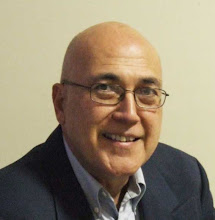According to Damian Thompson of the UK Telegraph on his post the day after the memo was published (26 April, 2010):
Then I read the story and it turned out that this wasn’t, after all, a back-of-the-envelope note circulated at some boring forward planning meeting for the papal visit, as the gag about the Pope doing forward rolls seemed to suggest, or a bad-taste email to cheer up the office. These were “far-fetched” elements of a memo circulated to top civil servants around Whitehall, by members of the Papal Visit Team, along with an asking-for-it instruction: “Please protect; this should not be shared externally.” Hell, a note like that is tantamount to removing the little word “not” and begging for trouble.
And, he notes further:
It reflects, though, something of the mood of embarrassment in political circles about the Pope’s visit; you could sense it when the party leaders were asked about it during their debate. What we seem to miss in all this is that Pope Benedict didn’t just invite himself to Britain. Gordon Brown formally asked him to come when he visited the Vatican last February. Indeed, the Prime Minister wrote in the Catholic weekly The Tablet recently: “What struck me most that day was his personal kindness, for when he did me the honour of granting me an audience, he also insisted on welcoming my wife Sarah and our two boys. Naturally, Britain’s Catholics will feel a particular joy and pride in the Holy Father’s visit. My message is that that sense of joy should extend to people of all faiths and none.”
Then, a few days later when the leader of the head of the team in charge of the Papal visit was revealed, he notes that there are people in the Catholic heirarchy who are not happy with the visit and that "the Catholic Church in this country [the United Kingdom} is (a) not wildly enthusiastic about Benedict XVI, and (b) paralysed by political correctness."
Political Correctness, wow. If that's true, it's really sad that PC is so pervasive, common courtesy and politeness is now out the window.
Now, reflecting on the FO's memo and say the memo were on the visit of the leading Imam from a foreign country, I wonder what the memo would read. Let me posit this, probably super politically-correct to the point of being obsequous.
Thompson further said that "the four-strong FO team was led by a member of an ethnic minority and included a gay man. There’s nothing wrong with that: they could have done a fantastic job, particularly if the team had included a practising Catholic (perhaps from an ethnic community – they’re the ones who go to Mass these days). But they didn’t." He comments on the members of the heirarchy, especially a monsignor. I will not comment on that as this is not within the points I wanted to put forward.
If you, dear reader, had any doubt that the negative sentiment against the Pope, the Catholic Church and its members, including the heirarchy does not exists, please open your eyes.
The head of the FO team was put on other duties. I'm not sure if he was even reprimanded.
According to the Daily Mail Online post of 28 April:
So, a high ranking FO member and no rebuke.Mr Noorani, 31, is far more senior than the Foreign Office has made out. Officials desperate to limit the damage have tried to play down his role, insisting he was merely a junior worker who acted without any authority.
But in fact Mr Noorani's title is 'Head of Papal Visit Team' and he is in charge of the staff preparing for the visit.
Until 2007, he was the press secretary at the British embassy in Moscow, trusted to handle delicate relations during the crisis over the poisoning of dissident Alexanda Litvinenko.
I am really stumped, what do you think?
